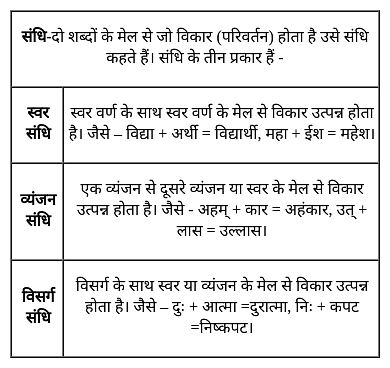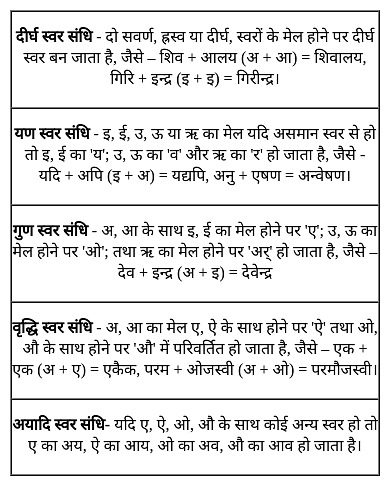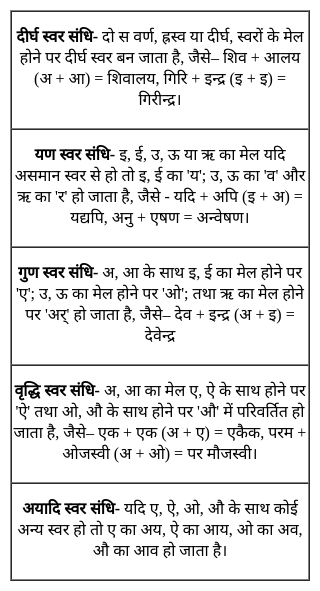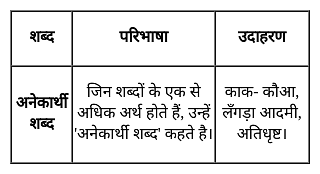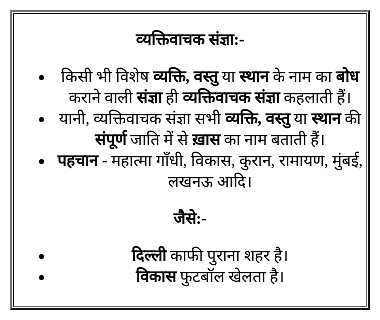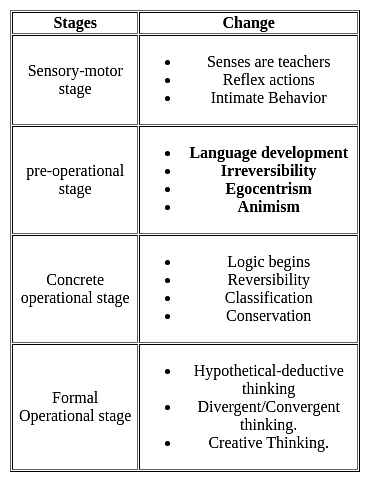DSSSB PRT Mock Test - 9 - DSSSB TGT/PGT/PRT MCQ
30 Questions MCQ Test DSSSB PRT Mock Test Series 2024 - DSSSB PRT Mock Test - 9
Direction: Read the following information carefully and answer the questions that follow.
A blacksmith has five iron articles A, B, C, D and E each having a different weight.
I. A weight is twice as much as of B.
II. B weight is four and half times as much as of C.
III. C weight is half times as much as of D.
IV. D weight is half as much as of E.
V. E weight is less than A but more than C.
Q. Which of the following is the lightest in weight?
A blacksmith has five iron articles A, B, C, D and E each having a different weight.
I. A weight is twice as much as of B.
II. B weight is four and half times as much as of C.
III. C weight is half times as much as of D.
IV. D weight is half as much as of E.
V. E weight is less than A but more than C.
In this questions, a number series is given with one term missing. Choose the correct alternative that will continue the same pattern and fill in the black spaces.
Q. 20, 19, 17, (____), 10, 5
| 1 Crore+ students have signed up on EduRev. Have you? Download the App |
In the ongoing free trade agreement talks between the UK and India, the key unresolved issue revolves around the level of protection for which type of products from the agricultural sector?
The average of X natural numbers is 20. If 40 is added to the first number and 4 is subtracted from the last number, the average becomes 22. What is the value of X?
The average of 8 numbers 12, 19, 23, 7, ‘x’, 9, 26 and 13 is 16. What is the value of ‘x’?
Two horses started simultaneously towards each other and meet each other 3 h 20 min later. How much time will it take the slower horse to cover the whole distance if the first arrived at the place of departure of the second 5 hours later than the second arrived at the point of departure of thefirst?
Directions for Questions: Answer the questions on the basis of the information given below.
The subject wise breakup of the marks obtained by 4 students in 5 subjects during their board examination is given below. Assume that all subjects carry equal maximum marks unless specified.
(2014)
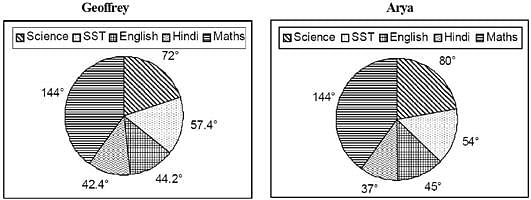
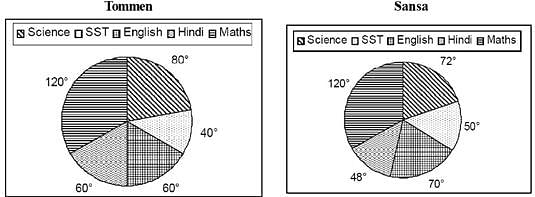
Q. If the minimum percentage required to pass in any subject is 33.33 and it is also known that Arya passed in all the subjects, then what can be the minimum percentage that she can score in English?
Direction: In the following question, a sentence has been given in Active/Passive Voice. Out of the four alternative suggested, select the one which best expresses the same sentence in Passive/Active Voice.
He stole that watch
Directions: In each of the following questions, a sentence has been given in Active (or Passive) Voice. Out of the four alternatives suggested, select the one that best expresses the same sentence in Passive/ Active Voice.
You should not offer meat to vegetarians.
Directions: In each of the following questions, a sentence has been given in Active (or Passive) Voice. Out of the four alternatives suggested, select the one that best expresses the same sentence in Passive/ Active Voice.
A lion may be helped even by a little mouse.
Directions: A sentence is given here with a blank and you need to fill the blank choosing the word/words given below. If all the words given can fill the blank appropriately, choose ‘All are correct’ as your answer.
Russian hardware was airlifted in with the aim of reinforcing _______________ in the south and the initial ambition was to advance along the southern coast of Ukraine.
I. Troop
II. Troupe
III. Fleet
Directions: The passage below is accompanied by a set of questions. Choose the best answer to each question.
Where does the mind end and the world begin? Is the mind locked inside its skull, sealed in with skin, or does it expand outward, merging with things and places and other minds that it thinks with? What if there are objects outside—a pen and paper, a phone—that serve the same function as parts of the brain, enabling it to calculate or remember? You might say that those are obviously not part of the mind, because they aren't in the head, but that would be to beg the question. So are they or aren't they?
Consider a woman named Inga, who wants to go to the Museum of Modern Art in New York City. She consults her memory, recalls that the museum is on Fifty-third Street, and off she goes. Now consider Otto, an Alzheimer's patient. Otto carries a notebook with him everywhere, in which he writes down information that he thinks he'll need. His memory is quite bad now, so he uses the notebook constantly, looking up facts or jotting down new ones. One day, he, too, decides to go to the museum, and, knowing that his notebook contains the address, he looks it up.
Before Inga consulted her memory or Otto his notebook, neither one of them had the address "Fifty-third Street" consciously in mind. So what's the difference?
Andy Clark, a philosopher and cognitive scientist at the University of Edinburgh, believes that there is no important difference between Inga and Otto, memory and notebook. Clark rejects the idea that a person is complete in himself, shut in against the outside, in no need of help.
How is it that human thought is so deeply different from that of other animals, even though our brains can be quite similar? The difference is due, he believes, to our heightened ability to incorporate props and tools into our thinking, to use them to think thoughts we could never have otherwise.
One problem with his Otto example, Clark thinks, is that it can suggest that a mind becomes extended only when the ordinary brain isn't working as it should and needs a supplement—something like a hearing aid for cognition. This in turn suggests that a person whose mind is deeply linked to devices must be a medical patient or else a rare, strange, hybrid creature out of science fiction—a cyborg. But in fact, he thinks we are all cyborgs, in the most natural way.
The idea of an extended mind has itself extended far beyond philosophy. Clark's idea has inspired research in the various disciplines in the area of cognitive science (neuroscience, psychology, linguistics, A.I., robotics) and in distant fields beyond. It is clear to him that the way you understand yourself and your relation to the world is not just a matter of arguments: your life's experiences construct what you expect and want to be true.
Q. Which of the following statements best presents Clark's view?
नीचे दिए गए शब्दों का सही संधि वाला विकल्प पहचानिए?
धर्म + अर्थ
'अनादर, उपेक्षा, निरादर' के लिए कौन सा अनेकार्थी शब्द सही है चयन कीजिए?
'श्याम मुर्ख नहीं बल्कि बुद्धिमान है ' रचना के आधार पर वाक्य भेद बताइए।
How might classical conditioning be applied in the treatment of a phobia?
I. By using exposure therapy to gradually expose the individual to the feared object or situation
II.By using punishment to discourage the individual from exhibiting the phobic behavior
What is the primary goal of Piaget's theory of cognitive development?
I. To explain how children develop cognitive skills
II. To explain how children develop physical skills
Which of the following best describes the Strange Situation in the context of attachment?



